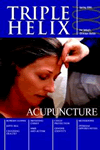Smacking ban
MPs are to vote on whether or not to ban smacking. A proposed amendment to the Children’s Bill, which has its second reading in the House of Lords later this year, would remove the defence of ‘reasonable chastisement’ and ban the corporal punishment of children by their parents, except in instances where it is necessary to avoid immediate danger or injury to any person, including the child himself. The measure is supported by the Children are Unbeatable Alliance, a group of more than 300 organisations and individuals including NSPCC, Barnardo’s, NCB and Save the Children. (The Times 2004; 15 March:58)
Sex education increases teen pregnancies
A report published by the Family Education Trust has found that explicit sex education in schools has resulted in an increase in the teenage pregnancy rate. Pregnancies have risen by up to 34% in schools that distribute free condoms and offer confidential health checks to girls. Valerie Riches, the former social worker who wrote Sex Education or Indoctrination described sex education as a ‘manipulative tool to replace the influence of parents with the authority of the state’. (The Times of London 2004; 15 March, quoted in SPUC Digest)
Reverse Russian Roulette
The NHS is to fund one IVF treatment cycle for sub-fertile women in England under the age of 40, by April next year. This falls short of the three cycles recommended by the National Institute for Clinical Excellence (NICE), which would cost an estimated £85m a year in England and Wales. The chances of a successful birth in a single cycle of IVF are put at around one in four for women under 35 and lower for women in the 35-40 age group; so going for a baby under the new regime will be like playing ‘reverse Russian roulette’, with chance of success not much better than one in six! (bbc.co.uk 2004; 25 February, Observer 2004; 22 February)
Italy bans embryo research and donor gametes
A new Italian law banning the use of surrogate mothers and donor eggs and sperm in IVF treatment came into force in March. The law also bans embryo freezing, disposal, experimentation and all preimplantation genetic testing and restricts treatment to married couples or those in a stable relationship. Senator Elisabetta Alberti Casellati said: ‘This law says “enough” to the abuses. It recognises that an embryo is a person and as such must be protected from the point of conception.’ (BBC 2003; 11 December; BMJ 2004; 328:9, 3 January)
‘Consumption smoothing’
Young professionals are delaying having children for economic reasons and one in five UK women has not had a baby by the age of 40. According to a report by the Institute of Public Policy Research, ‘People have begun to indulge in “consumption smoothing” where they try to accumulate as much wealth as possible to lessen the impact of kids on lifestyle. This has huge implications for UK birth rates and the ageing population and pensions debates that are currently raging.’ (The Daily Telegraph 2003; 14 November)
Illegal GMC guidance?
Leslie Burke, a 44-year-old Lancaster man with congenital cerebellar ataxia, has challenged the General Medical Council (GMC) on the grounds that its guidance Withholding and Withdrawing Life-Prolonging Treatments: Good Practice in Decision Making fails to comply with the European Convention on Human Rights. The verdict in the case was awaited as Triple Helix went to press. (GMC News 2003; December 2003)
US cuts abortion funding to UNFPA
The US senate has permanently reallocated $59 million away from the UN Population Fund, C-FAM reports. The funds were withheld from UNFPA because of its involvement in coercive abortion in China and have been transferred to programmes that work to improve maternal health and combat sex trafficking. The move comes in spite of efforts by pro-abortion groups such as ‘Catholics’ for a Free Choice to draw attention away from UNFPA’s role in China. (C-FAM, 30 January, quoted in SPUC Digest)
Israel rules on post-mortem sperm donation
Israel’s attorney general, Elyakim Rubinstein, has issued formal regulations that will allow the removal of sperm from a man’s body at the request of his wife or common law wife. Under the new regulations the woman must obtain the permission of a court to use the frozen semen, and the regulations are such that her request is likely to be granted. The new situation in Israel is in direct contrast to the situation in the United Kingdom, where Diane Blood was denied use of her dead husband’s sperm on the grounds that he had not given clear permission for its use before he died. She has since had two children after being inseminated by his sperm abroad. (BMJ 2003;327:1187, 22 November)
Designer baby case
A landmark legal battle over the creation of so-called ‘designer babies’ is to be settled in the House of Lords. Opponents will challenge an Appeal Court decision that allowed a couple to use preimplantation diagnosis to select an embryo whose tissue could save their terminally ill son.
Shahana and Raj Hashmi were granted permission by the Human Fertilisation and Embryology Authority (HFEA) last May to screen the tissue type of their IVF embryos to ensure they had a baby whose stem cells would be compatible with their son Zain, who they claim needs a bone marrow transplant for ?-thalassemia. Thus far they have been unsuccessful in producing an appropriate ‘saviour sibling’, suffering a miscarriage in December last year (Reuters, London, 26 January). Last year in Italy, where 13% of Sardinians carry the thalassemia gene, all but 20 of 1,600 fetuses diagnosed prenatally were aborted. (BMJ 2004; 328:9, 3 January)
Funding shortage for therapeutic cloning
The European commission, backed by the European Parliament in a November 2003 vote, wanted stem cell work to be funded from the EU’s £17.5bn 2002-06 research budget. This has now been overruled. This means that plans for central EU funding for such research will be put off for the foreseeable future. (Guardian 2003; 4 December)































